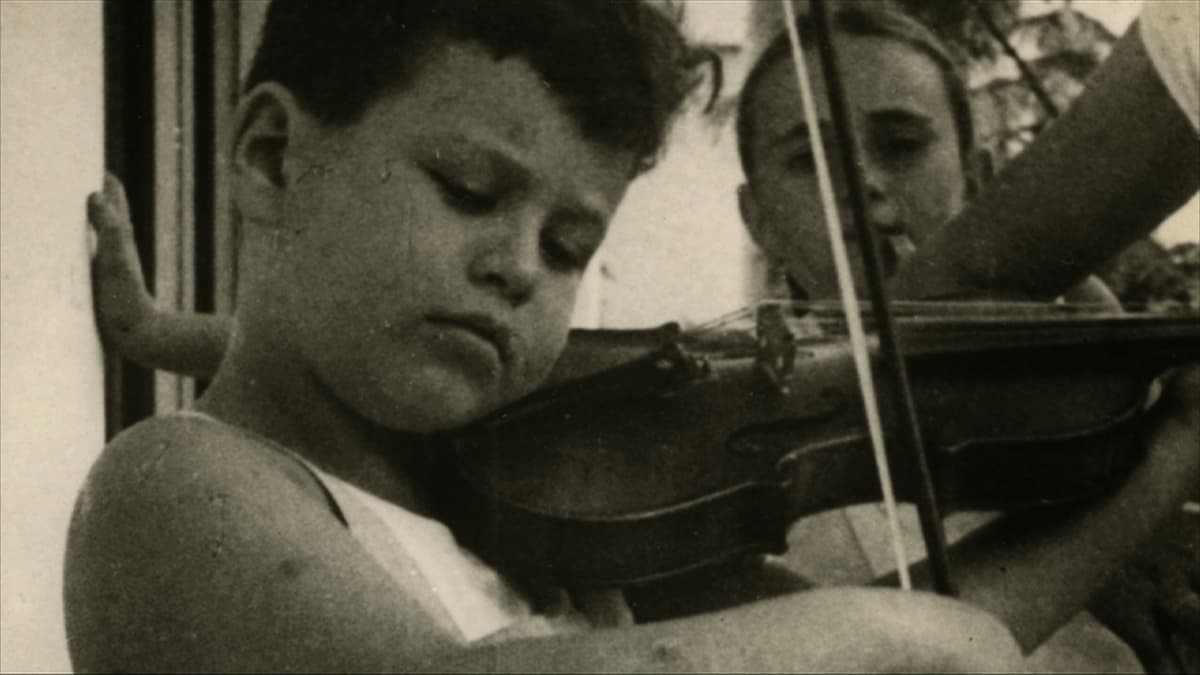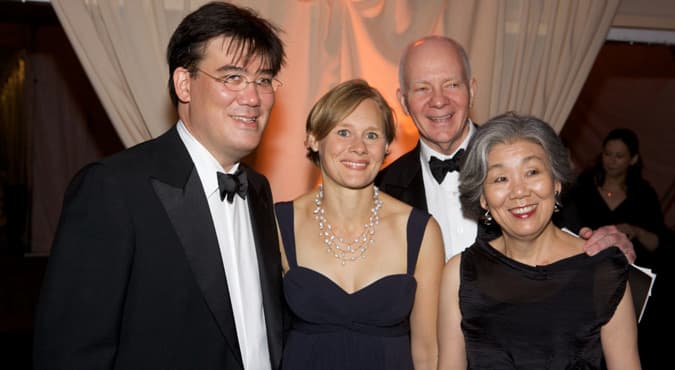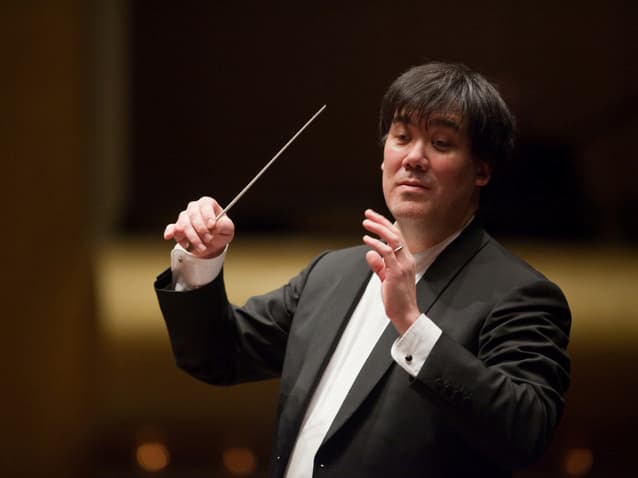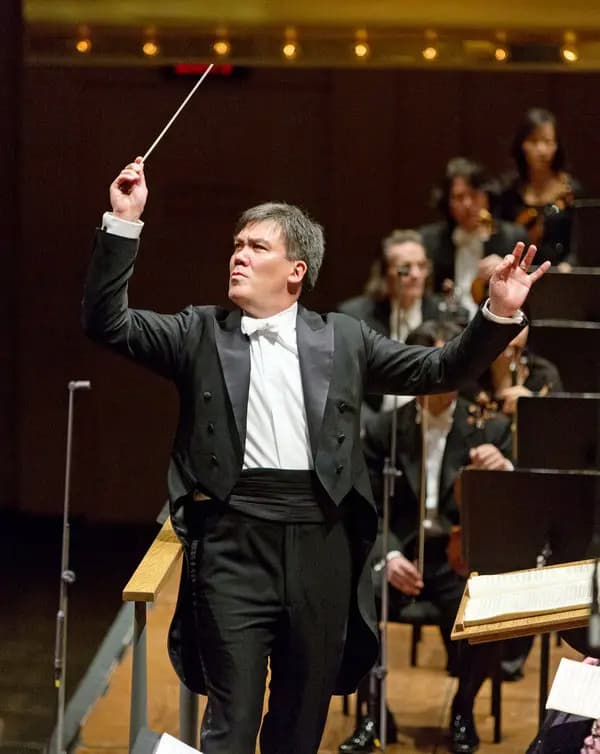Known for his ability to communicate with and engage audiences, Alan Gilbert became one of the youngest music directors of the New York Philharmonic and the first native New Yorker to hold the position. Gilbert built his reputation conducting contemporary and American music, and he is the recipient of Honorary Doctor of Music degrees from the Curtis Institute and Westminster Choir College.
Alan Gilbert Conducts Verdi’s La forza del destino, “Overture”
Heritage

The young Alan Gilbert
Born on 23 February 1967 in New York City, Alan Gilbert was born into an extraordinarily musical family. His father, Michael Gilbert, was a violinist in the New York Philharmonic starting in 1970. Michael Gilbert grew up in Memphis and came from a long line of musicians, and his father was a violinist and conductor as well. Initially, Michael Gilbert was concertmaster of the American Symphony Orchestra under Leopold Stokowski, and he freelanced at the Metropolitan Opera.
His mother Yoko Takebe had no musicians in the family. Rather, her father was a businessman in Tokyo, and Yoko came to study violin at Julliard. She started her professional career in the Philadelphia Orchestra under Eugene Ormandy but subsequently auditioned for the New York Philharmonic and got in. As Gilbert explains, “her parents’ worst fear was that she would marry an American guy and not move back to Tokyo. And that’s exactly what happened.”
Christopher Rouse: Odna Zhizn (New York Philharmonic Orchestra; Alan Gilbert, cond.)
Early Training

The Gilbert family
Growing up in the Upper West Side of Manhattan, Gilbert started lessons on violin, viola, and piano. His sister also became a violinist, and she is concertmaster of the Orchestre National de Lyon. While Gilbert became an accomplished violinist, he had always been interested in conducting. As he recalls, “my father wasn’t a pushy parent who groomed me to be a conductor, but he did show me how to conduct basic lead patterns, how to start Beethoven Five and Shostakovich Five.”
As a junior in high school, Gilbert decided to take a conducting course at a summer music festival in the Bronx called Estherwood. He organised a little concert with his friends in a performance of three Brandenburg Concertos. The teacher Ronald Braunstein apparently told him, “you know what, you actually have some talent. You should consider conducting.”
Alan Gilbert Conducts Mahler’s Symphony No. 5 (Excerpt)
Advanced Studies

Alan Gilbert
Gilbert studied music at Harvard University, and he played violin in the Harvard-Radcliffe Orchestra. Gilbert secured a student assistant conductor position during his first week of school, and he had some passing interactions with Leonard Bernstein at Harvard. Gilbert also spent a couple of summers at Tanglewood, the summer home of the Boston Symphony Orchestra.
Gilbert’s biggest influence at Tanglewood turned out to be Seiji Ozawa. Gilbert remembers, “he was very supportive, maybe because he and my mother were classmates back at the Toho Gakuen School of Music. He was a very strong presence. We were all terrified he would show up at class. We had a wonderful teacher, Gustav Meier, a good conductor but a great conducting pedagogue.”
Carl Nielsen: Clarinet Concerto, Op. 57, FS 129 (Anthony McGill, clarinet; New York Philharmonic Orchestra; Alan Gilbert, cond.)
Buddying Career

After obtaining a degree from Harvard, Gilbert studied conducting at the Curtis Institute and the Juilliard School with Otto-Werner Müller. “He had an incredible musical mind,” Gilbert explains, “and an unbelievably rigorous approach to music. It was from him that I learned not only how much to study but how much it was necessary to study.” Gilbert won the Georg Solti prize in 1994 and first prize at the International Competition for Musical Performance in Geneva.
Gilbert had been a violinist with the major American orchestras, but when he got to Cleveland he had responsibilities as a conductor under Christoph von Dohnányi. For Gilbert, Dohnányi was a very important mentor and a great conductor with an “absolutely crystal-clear brain for music.” Until today, Gilbert is trying to approach his assistant conductors in the same way as Dohnányi did. “He always wanted us to spend time with him backstage before the concert, during the intermission, after the concert. Essentially, what he did was to hold court. He was unbelievably confident but also truly interested in what we thought.”
For more of the best in classical music, sign up for our E-Newsletter
